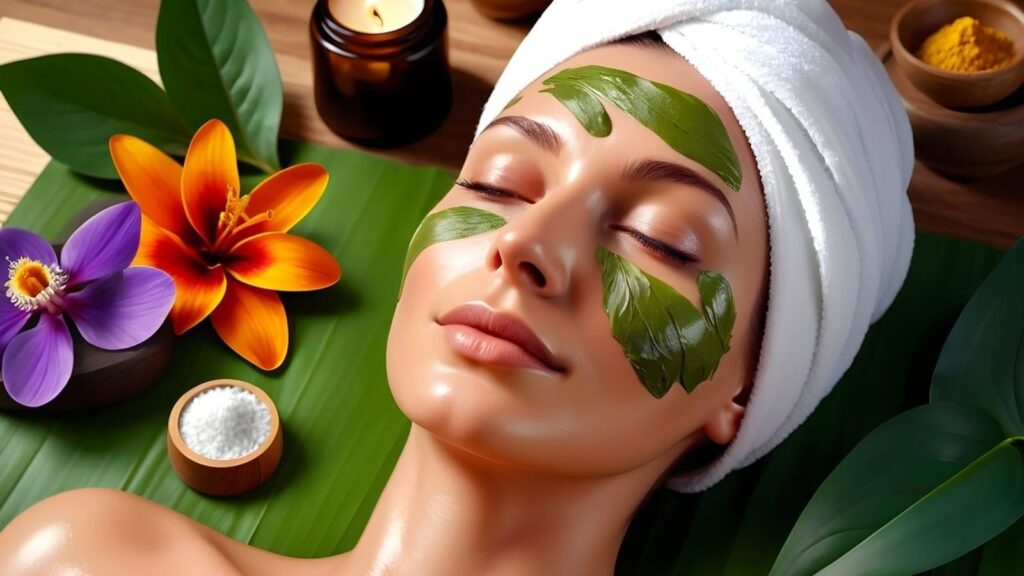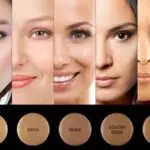
Your skin is your body’s largest organ, and it reflects your overall health and lifestyle. In today’s world, where pollution, stress, and poor dietary habits are rampant, taking care of your skin is not just a luxury—it’s a necessity. You don’t always need expensive products or complicated routines. What truly matters is consistency and the right habits.
In this blog, we’ll explore 10 everyday skincare habits that can transform your skin, boost your confidence, and help you achieve that natural, radiant glow.
Start Your Day with a Gentle Cleanser
Your skin gathers oil, sweat, and bacteria even while you sleep. Starting your day with a gentle, non-stripping cleanser helps remove impurities and prepares your skin for the rest of your routine.
Tips:
Choose a sulfate-free, pH-balanced face wash.
Avoid hot water; lukewarm is best.
Don’t overwash; twice a day is enough.
Recommended for:
Oily/Combination Skin: Gel-based cleansers
Dry/Sensitive Skin: Cream or milk-based cleansers
Never Skip Sunscreen
The number one cause of premature aging, pigmentation, and sunspots is unprotected sun exposure. Using sunscreen daily—even indoors or on cloudy days—is a game-changer for healthy skin.
What to Look For:
SPF(Sun Protection Factor) 30 or higher
UVB rays have a shorter wavelength, primarily affecting the outer layer of the skin, and are responsible for sunburns and play a major role in skin cancer development.
Key differences between UVA and UVB:- Wavelength: UVA has a longer wavelength than UVB.
- Wavelength: UVA has a longer wavelength than UVB.
- Penetration: UVA penetrates deeper into the skin, reaching the dermis, while UVB primarily affects the epidermis (outer layer).
- Effects: UVA contributes to skin aging, wrinkling, and tanning, while UVB causes sunburn, tanning, and is a major factor in skin cancer development.
- Quantity: Approximately 95% of UV radiation reaching the Earth’s surface is UVA, while the remaining 5% is UVB.
- Sunscreen: Sunscreens with broad-spectrum protection offer defense against both UVA and UVB rays.
- Tanning beds: Tanning beds primarily use UVA radiation.
- What is the difference between UVA and UVB rays? – UIHC.org1 Apr 2018 — There are many different types of rays present in sunlight. The rays that are most damaging to our skin are called ultra…UIHC.org
- What’s the difference between UVA and UVB rays?UVA radiation makes up 95% of the all the UV rays that make it to the Earth’s surface. UVA penetrates deep into our skin and can e…MD Anderson Cancer Center
- Ultraviolet (UV) radiation – World Health Organization (WHO)9 Mar 2016 — Short-wavelength UVC is the most damaging type of UV radiation. However, it is completely filtered by the atmosphere and…World Health Organization (WHO)
Broad-spectrum (UVA rays have a longer wavelength and penetrate deeper into the skin, contributing to premature aging and wrinkling
Lightweight and non-comedogenic
Application Tip:
Apply it as the last step in your skincare routine, 15 minutes before stepping out.
Stay Hydrated – Inside and Out
Water is the ultimate natural detoxifier. Proper hydration improves skin elasticity, flushes out toxins, and prevents dullness.
Habits to Adopt:
Drink at least 8–10 glasses of water daily
Use a hydrating serum with hyaluronic acid
Use a humidifier in dry climates
Hydrated skin looks plumper, fresher, and younger.
Moisturize Every Morning and Night

Many people believe only dry skin needs moisturizing. That’s a myth! Moisturizing seals in hydration and creates a protective barrier against environmental stress.
Choose the Right Formula:
Oily skin: Lightweight gel or water-based
Dry skin: Creamy, nourishing moisturizers
Sensitive skin: Fragrance-free, soothing ingredients like aloe or oat
Don’t forget your neck and under-eye area—they age faster than you think!
Remove Makeup Thoroughly
Sleeping with makeup is one of the biggest skincare sins. It clogs pores, triggers breakouts, and speeds up aging.
Best Practice:
Use micellar water or an oil-based cleanser to break down makeup
Follow with your regular face wash (double cleansing)
Use a soft cotton pad—never scrub
Make this a non-negotiable habit for healthy, clear skin.
Follow the Right Skincare Order
Even if you have the right products, using them in the wrong order can reduce their effectiveness. The general rule: go from thinnest to thickest.
Correct Skincare Order:
Cleanser
Toner (optional)
Serum (vitamin C, niacinamide, etc.)
Moisturizer
Sunscreen (morning) or Night Cream (evening)
Layering properly ensures maximum absorption and results.
Exfoliate Weekly
Dead skin cells can clog pores and make your skin look dull. Gentle exfoliation once or twice a week helps brighten your skin and improve texture.
Two Types of Exfoliants:
Physical (scrubs) – Use mild, fine-grain options
Chemical (AHAs/BHAs) – Best for acne-prone or textured skin
Avoid over-exfoliating, especially if you have sensitive or dry skin.
Eat a Skin-Friendly Diet
Your skin reflects what you eat. A diet high in processed sugar, fried foods, and dairy can cause breakouts and inflammation.
Foods That Nourish Your Skin:
Omega-3s: Flaxseeds, walnuts, fish
Vitamin C: Oranges, berries, bell peppers
Zinc: Pumpkin seeds, legumes
Antioxidants: Green tea, spinach, dark chocolate
Also, cut down on alcohol and caffeine—they dehydrate the skin.
Don’t Touch Your Face Frequently
Unconsciously touching your face transfers dirt, oil, and bacteria from your hands to your skin—leading to clogged pores and breakouts.
Skincare Habit Tips:
Keep your hands clean
Avoid picking at pimples or blackheads
Clean your phone screen regularly
This small but crucial habit can save you from many skin issues.
Sleep Your Way to Clearer Skin
Your body repairs itself while you sleep—including your skin. Lack of sleep leads to dark circles, puffiness, and dull complexion.
Beauty Sleep Tips:
Sleep 7–8 hours a night
Use a silk or satin pillowcase
Elevate your head slightly to reduce puffiness
Apply a nourishing night cream or serum before bed
Never underestimate the power of proper rest in your skincare journey.
Bonus Tips for Healthy Skin:
Keep stress in check—try meditation or yoga
Clean your makeup brushes weekly
Avoid smoking and limit alcohol
Use products suited to your age and skin concerns
Final Thoughts: Consistency is the Key to Transformation
You don’t need an elaborate 10-step routine or expensive serums to get great skin. These 10 everyday skincare habits are simple yet powerful. When done consistently, they help improve texture, tone, hydration, and overall radiance.
Start with small changes. Stick to them daily. And in just a few weeks, you’ll begin to notice a healthier, more glowing version of your skin.
Related posts:
 Unleashing the Potential of Small Habits: Exploring James Clear’s ‘Atomic Habits
Unleashing the Potential of Small Habits: Exploring James Clear’s ‘Atomic Habits
 How to Choose the Right Foundation for Your Skin Tone
How to Choose the Right Foundation for Your Skin Tone
 How to Remove Holi Colors? Precautions to Take Before Playing Holi
How to Remove Holi Colors? Precautions to Take Before Playing Holi
 Chanakya Neeti: Timeless Wisdom for Modern Life
Chanakya Neeti: Timeless Wisdom for Modern Life
 Unlocking the Secrets of Sleep: How Sleep Physiology Shapes Brain Function
Unlocking the Secrets of Sleep: How Sleep Physiology Shapes Brain Function
 Sacred Forests and Trees: The Spiritual Connection Between Nature and Culture
Sacred Forests and Trees: The Spiritual Connection Between Nature and Culture
